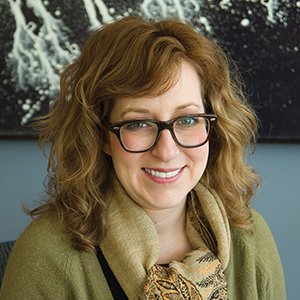Meet Mindy Engevik
Mindy Engevik, an assistant professor at Medical University of South Carolina’s College of Medicine, will be one of three official tweeters for the American Society for Biochemistry and Molecular Biology’s annual meeting, which will be held in conjunction with Experimental Biology in April in Philadelphia. ASBMB Today talked to her about her background, interests and expectations for the meeting. The interview has been edited for length, clarity and style.

Tell me a bit about your background and educational journey. How/why did you wind up where you are? In other words, what’s your story?
I grew up in Southern California, and after obtaining my bachelor’s degree in biology, I was unsure of my career path. To gain some research experience, I pursued a master’s in microbiology and then afterward started working as a research assistant at the University of Cincinnati.
While at UC, it became clear to me that I was passionate about research and wanted to earn a Ph.D. After getting my Ph.D. in systems biology and physiology, I migrated south to Houston, Texas, at Baylor College of Medicine, where I enjoyed warm winters and exciting gut microbe work.
I then joined the Medical University of South Carolina as an assistant professor, and I am striving to create a vibrant lab community.
Tell me a bit about your studies/research.
Our lab examines the interactions between microbes and mucus in the intestine. Mucus creates an important barrier between antigens and the immune system, and we are interested in microbes that degrade mucus and microbes that bolster mucus.
At Experimental Biology this year, my group will be showcasing some of our recent work looking at mucin-degrading and mannan-degrading glycosyl hydrolases within the human gut microbiota. Our work highlights some new microbe–glycan interactions that may be relevant in several disease settings.
What else are you passionate about? What do you do in your spare time, or what kind of service really revs you up?
I am really passionate about promoting women in science. I am a FabFem mentor to high school students, and I hope to give confidence to young women who are considering science as a career.
Which types of sessions do you expect to attend or are you most excited about?
I’m very excited about the glycobiology sessions! I’m particularly interested in the “Structure/Function and Manipulation and Imaging of the Glycocalyx” and the “Recent Advances in Glycobiology” sessions.
If you’re a veteran of the meeting, what kind of advice do you have for first-timers, students in particular?
I highly recommend creating a 30-second elevator pitch of your science. It’s a great way to introduce yourself whenever someone asks you what you do.
Anything else you’d like to share?
I’m excited to meet some people I have only known through Twitter in person!
Enjoy reading ASBMB Today?
Become a member to receive the print edition four times a year and the digital edition monthly.
Learn moreGet the latest from ASBMB Today
Enter your email address, and we’ll send you a weekly email with recent articles, interviews and more.
Latest in People
People highlights or most popular articles

Building a stronger future for research funding
Hear from Eric Gascho of the Coalition for Health Funding about federal public health investments, the value of collaboration and how scientists can help shape the future of research funding.
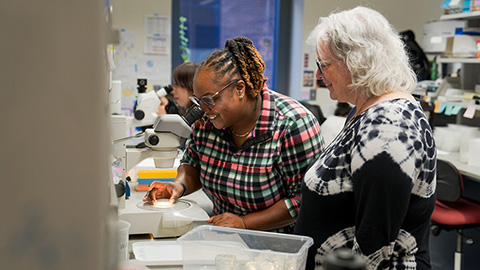
Fueling healthier aging, connecting metabolism stress and time
Biochemist Melanie McReynolds investigates how metabolism and stress shape the aging process. Her research on NAD+, a molecule central to cellular energy, reveals how maintaining its balance could promote healthier, longer lives.
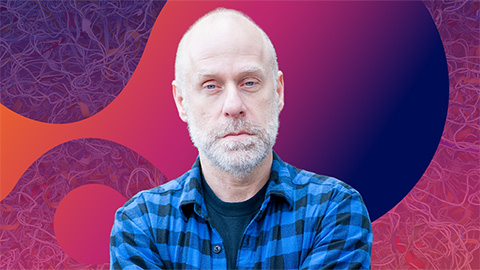
Mapping proteins, one side chain at a time
Roland Dunbrack Jr. will receive the ASBMB DeLano Award for Computational Biosciences at the ASBMB Annual Meeting, March 7–10, just outside of Washington, D.C.

2026 voter guide
Learn about the candidates running for Treasurer-elect, Councilor and Nominating Committee.
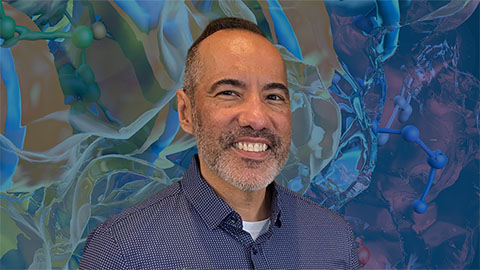
Meet the editor-in-chief of ASBMB’s new journal, IBMB
Benjamin Garcia will head ASBMB’s new journal, Insights in Biochemistry and Molecular Biology, which will launch in early 2026.
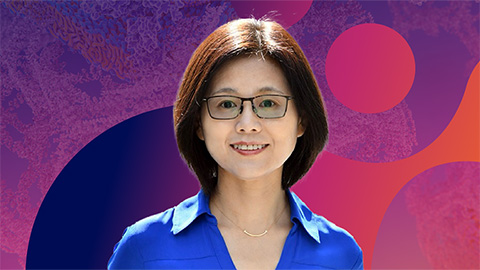
Exploring the link between lipids and longevity
Meng Wang will present her work on metabolism and aging at the ASBMB Annual Meeting, March 7-10, just outside of Washington, D.C.

